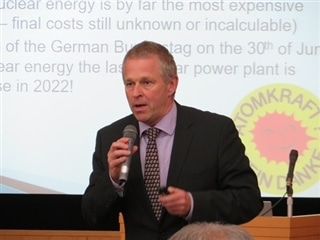- TOP
- Jean Monnet Activities
- Jean Monnet Chair (Agreement No. 2018・3245 / 004 – 001)
- EVENTS Jean Monnet Chair
- 27th November 2019 Jean Monnet Activities Kick Off Workshop
[ Editor: Institute for Industrial Research 30th July, 2020 ]
27th November 2019 Jean Monnet Activities Kick Off Workshop
“Urban Transformation & Countryside Revitalization: Assessing the Chances & Challenges”
Schedule:
3:30 p.m. Welcome and Introduction
3:40 p.m. Presentation 1: “Urban shrinkage in comparative perspective”
Prof. Dr. Thorsten Wiechmann, Dean, School of Spatial Planning,TU Dortmund University
4:10 p.m. Presentation 2: “Renewable Energies - a Chance for New Regional Industry Development? The Case of the ‘Living Lab Energy-Avant-garde Anhalt”
Prof. Dr. Holger Bungsche, School of International Studies, KGU
4:40 p.m. Breaktime
4:50 p.m. Presentation 3: “Revitalisation of the Tamba Sasayama region”
Dr. Anna Schrade, Institute for Industrial Research, KGU
5:40 p.m. Q&A & Panel Discussion: “How to make urban and rural areas more future-proof?”
Prof. Dr. Thorsten Wiechmann, Dr. Letizia Imbres, Prof. Dr. Holger Bungsche, Dr. Anna Schrade
6:30 p.m. Closing
Summary:
Kick-off workshop to celebrate the Jean Monnet Chair (JMC) and the Jean Monnet Module (JMM) being awarded to KGU
On November 27th, the JMC held by Prof. Holger Bungsche and the JMM held by Dr. Anna Schrade was formally started with a joint international symposium on the topic of the revitalization of rural and metropolitan areas.
Students, researchers and representatives from local governments gathered to discuss the implication of population ageing, internal migration and industrial changes on different localities.

First Presentation:
The workshop started with a presentation by Prof. Thorsten Wiechmann from Technical University Dortmund who compared the shrinkages of metropolitan areas in the US and Germany, revealing different trends in these two countries and highlighting the need among cities to learn from others’ experiences in managing decline.
Handout

Second Presentation:
Focusing on the “Living Lab Energy Avant-Garde Anhalt” in the region around Dessau, Germany, Prof. Holger Bungsche introduced strategies of this region, which once was a major coal-mining area and the center of the East German chemical industry, to shifted its energy supply to locally produced (and consumed) renewable energy sources in order to foster the change from old to new industries, create new employment opportunities, increase the region’s sustainability, its reputation, and the quality of life as well. He pointed out that the need for decarbonization of all energy consuming sectors even provides regions that experience industrial change with the chance to become forerunners in new industrial developments, and can even increase their attractiveness.
Handout

Third Presentation:
Dr. Anna Schrade, turning the focus away from big urban areas, analysed the efforts to by Tamba Sasayama, a small town in rural Hyogo Prefecture, to revitalize its community. Pointing out the numerous effective policies by the local government, NGOs, citizens and educational institutions, she proposed that Sasayama could be used as role model for other localities.
Handout

Panel Discussion:
The event concluded with an introduction of several examples of how localities in Germany try to revitalize their communities, followed by a panel discussion on the future of urban and rural areas. The aforementioned three presenters and Dr. Letizia Imbres, Research Fellow at Technical University Dortmund, discussed what could be done to promote growth in different villages, towns and cities.

Acknowledgements:
We would like to thank everyone who participated and contributed to the success of this kick-off event, in particular the guests from the governments of Kobe City, Amagasaki City, Nishinomiya City and Hyogo Prefecture for their contribution and the lively discussion. Our gratitude goes especially to Prof. Wiechman and Dr. Imbres for accepting our invitation, to the European Commission for funding our Jean Monnet Chair and Module, and to the Institute for Industrial Research at Kwansei Gakuin University for organizing the event.
Number of participants: 35

